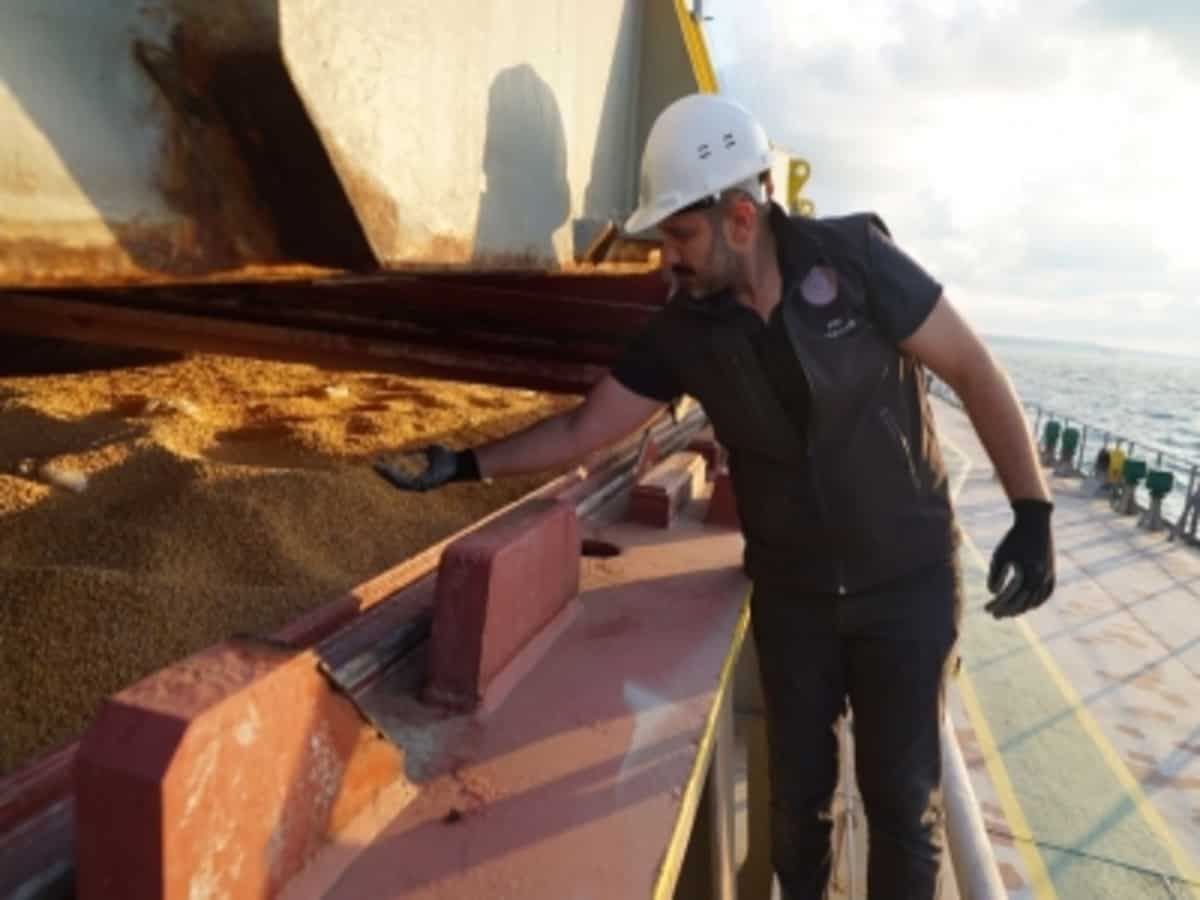
Ankara: Serving as a mediator between Russia and Ukraine, Turkey is working to revive the Black Sea Grain Initiative to bolster its regional influence and secure cheap grains, analysts said.
The agreement, which had been brokered by Turkey and the UN in July 2022 in Istanbul, encountered a setback when Russia decided to withdraw from it on July 17, alleging unfulfilled obligations by its counterparts, reports Xinhua news agency.
Since then, Turkish President Recep Tayyip Erdogan, his ministers, and diplomats have been working intensively to revive the deal.
Erdogan held phone talks with his Russian and Ukrainian counterparts and said that Russia’s Vladimir Putin may visit Turkey in August to discuss the grain deal.
Regional influence, prestige, and cheap grains are the main incentives for Turkey to revive the grain initiative, Batu Coskun, an Ankara-based independent political risk analyst, told Xinhua.
“There is a very significant prestige component to it, and Turkey emerged as a very significant interlocutor between Ukraine and Russia,” he said.
In Coskun’s view, Ankara wants to use a possible reenactment of the grain deal as a means of rapprochement between Moscow and Kiev.
Turkey’s leadership has been keen to capitalise on its previous diplomatic success with the grain deal which it sees as a step toward permanent peace, he said.
Kerim Has, a Moscow-based analyst, believes that economic reasons are at the top of Turkey’s motivation for the reinstatement of the Black Sea Grain Initiative, as the country reels from economic woes, especially food inflation.
“More than 80 per cent of the wheat imported by Turkey comes from Russia and Ukraine. For a long time, Turkey is the number one client of Russia,” he told Xinhua.
“In addition, Turkey was buying wheat at discounted prices from both countries by mediating in the grain corridor,” Has said.
Yet Russia’s withdrawal from the initiative that allowed the export of Ukrainian grain across the Black Sea resulted in skyrocketing global grain prices, sparking concerns about a looming food crisis.
Facing such difficulties, Turkey would want to be seen as a nation exerting diplomatic efforts to bring aid and food to the least economically developed parts of the world, Coskun argued.
Ankara, which pursues a “proactive neutrality” in the Ukraine war, has not joined Western sanctions on Russia, but has sealed off the Turkish straits to Russian army vessels, preventing Russian warships from entering or leaving the Black Sea.
Turkey has said that Western countries should try to address Russia’s complaints and that it hopes Russia would return to the deal.
During televised remarks on August 8, Erdogan warned against the specter of escalating military conflict in the Black Sea after Moscow’s withdrawal from the deal.
“Extending the war to the Black Sea would be a complete disaster for our entire region,” Erdogan said, adding that his country would continue to implement the 1936 Montreux Convention, a document that asserts Turkey’s control of the Bosporus and the Dardanelles.
